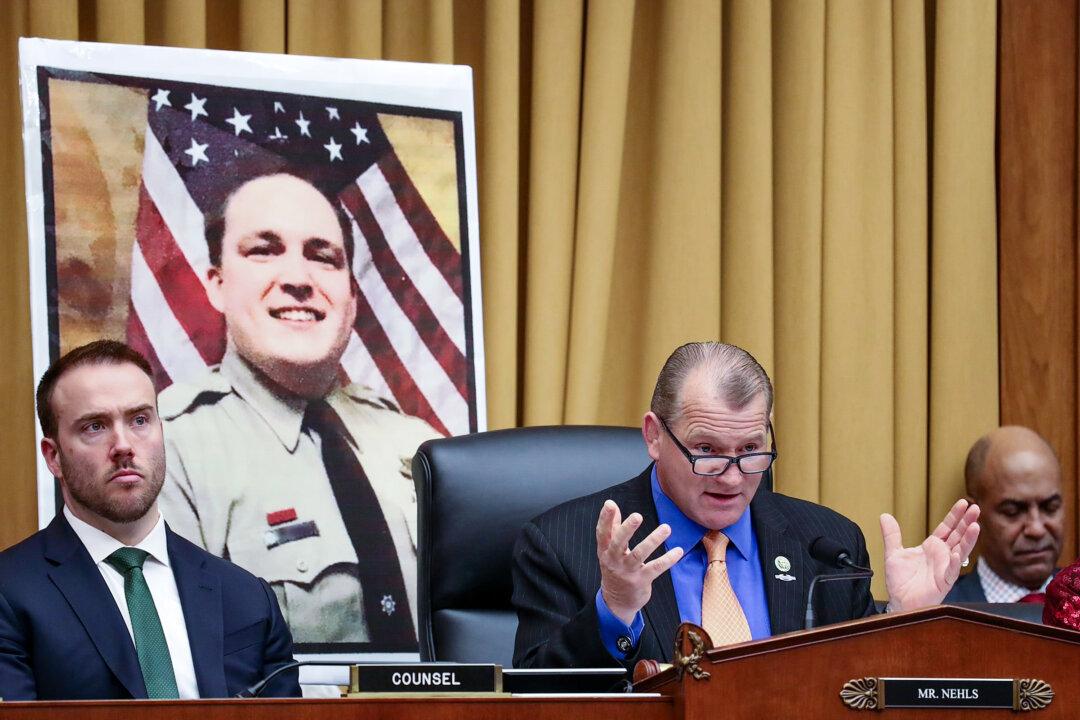A Jan. 6 probationer should not only have his computer monitored for “disinformation” but must also be prevented from accessing “extremist media” content in order to protect the public from “dissemination of misinformation,” a federal prosecutor argues in a recent court filing.
The U.S. Department of Justice did not originally ask senior U.S. District Judge Reggie Walton to order a probation agent to monitor Daniel Goodwyn’s computer, but it now fully supports the idea—with the addition of banning so-called “extremist media” propaganda.





